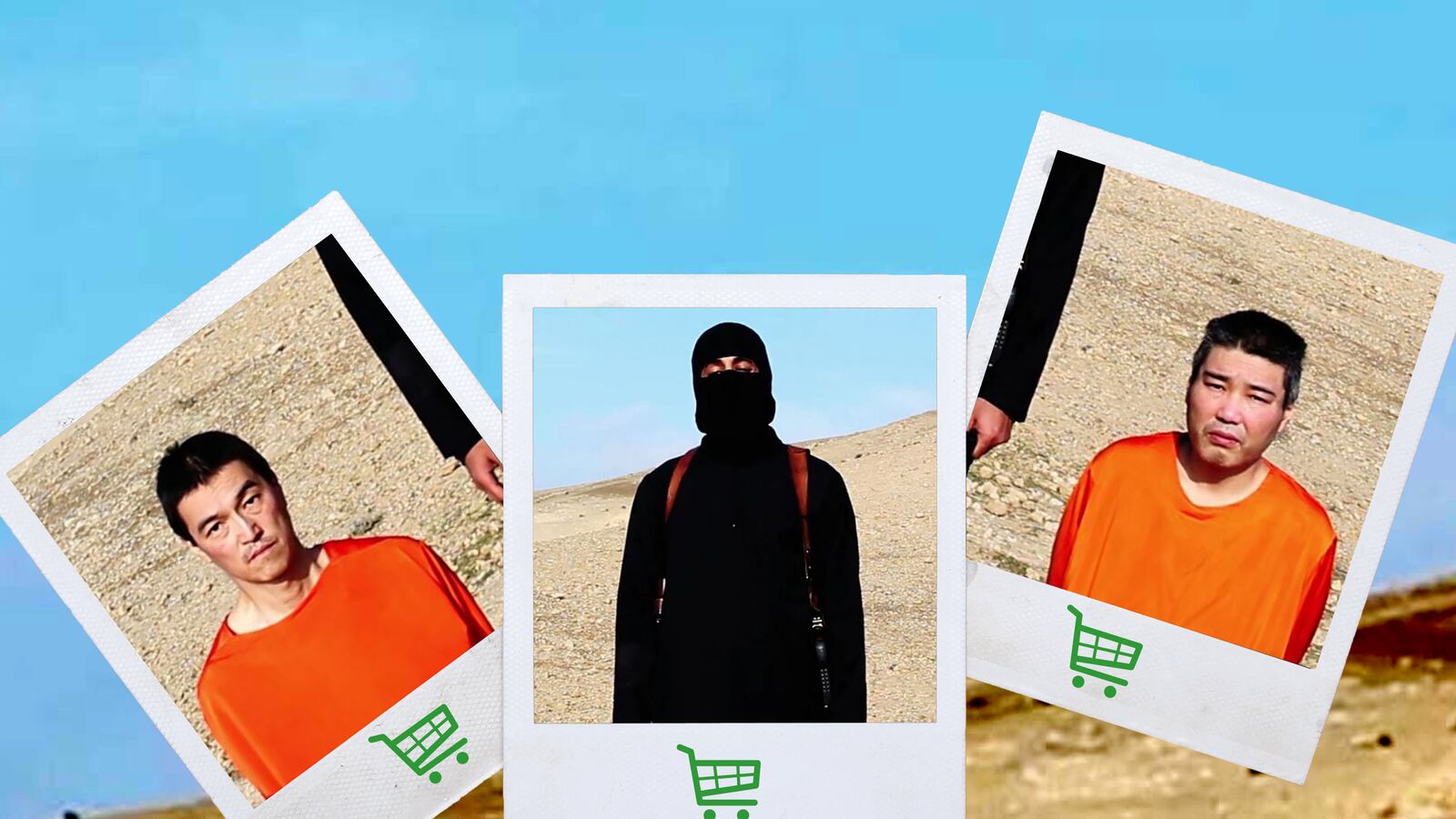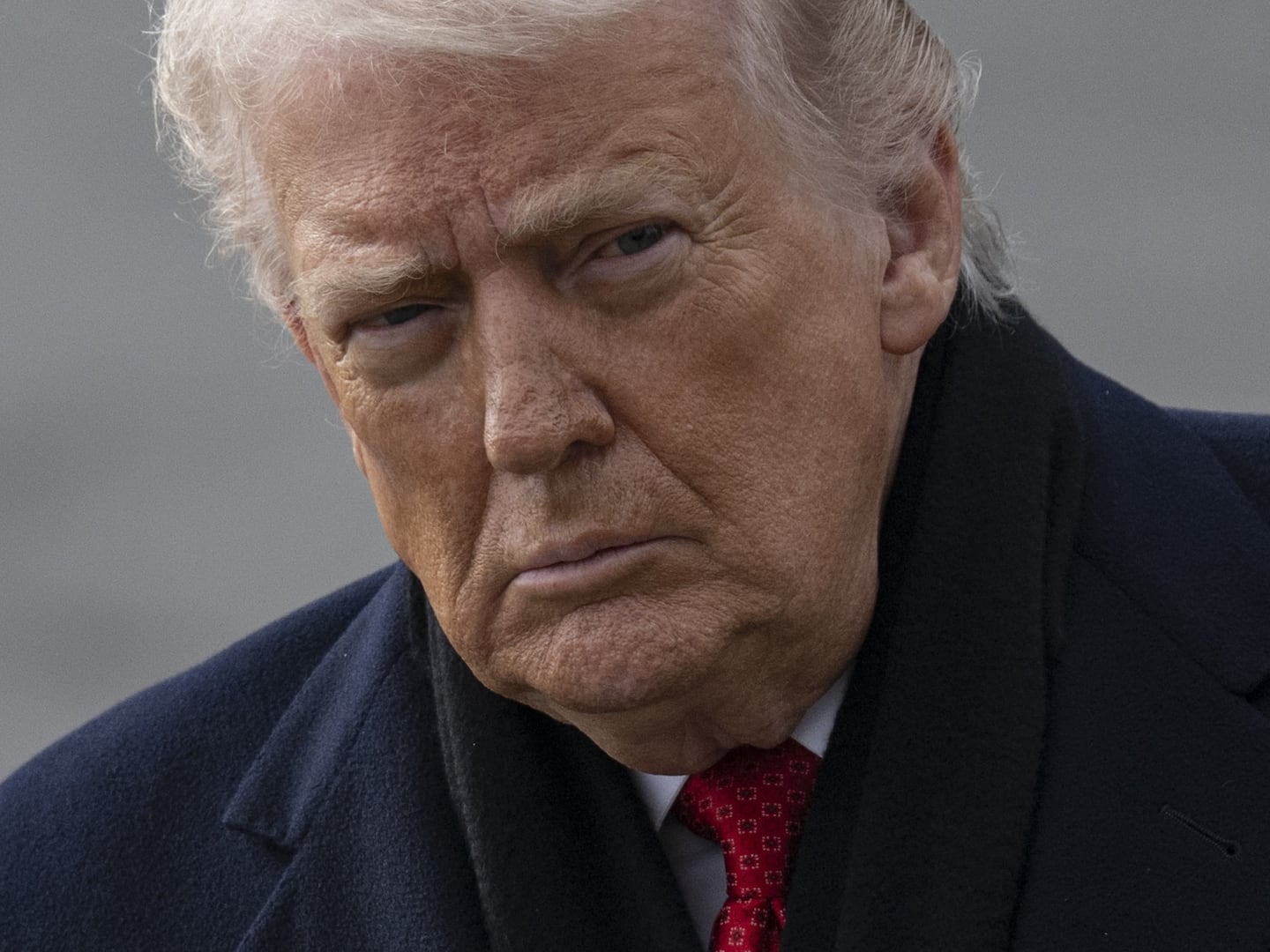When a hostage crisis brought downtown Sydney to a standstill, Uber began charging four times normal rates to customers. In the wake of Ferguson and Eric Garner, entrepreneurial T-shirt-makers plastered slogans on everything from Garner’s last words to pro-police slogans and sold their wares to the tune of hundreds of thousands in profit. After Hurricane Sandy, a slew of businesses in New York and New Jersey—from hotels to gas stations—paid enormous fines for inflating prices for their suddenly rare supplies.
This is the business of crisis, and for time immemorial those with a controlling hand have been cashing in and angering those buying what they peddle.
On Wednesday, Getty Images sent out an email advertising: “***EXCLUSIVE**• Interview Footage of Japanese ISIL Hostage, Kenji Goto Jogo.” In it, an agency representative notes that the video is the last known interview with the journalist currently being held in Syria. The footage was filmed by Anadolu Agency and is from October. The going rate to purchase it was a minimum of $1,000, depending on the buyer. For The Daily Beast, the price would include the video and a screenshot to use as a photo, but for one time use only. And if the bought footage was shared on both the web or social media, it would add $500 to the price tag.
Just like Uber or local entrepreneurs and businesses, the media is no stranger to price gouging in times of catastrophe or overwhelming public demand. There was no price too high for those exclusive Baby George photos, and the paparazzi market is a bidding frenzy, but how far can something be monetized before a comfort line is crossed? And what if, like news content, its release is in the national or global interest?
Getty uses a subscription model, so media companies get a certain amount of photos to publish, but when disaster strikes and the photos become rare or suddenly urgent, the price skyrockets. Such was also the case for a series of photographs released in July that showed New York police officers tackling and placing Eric Garner in the chokehold that killed him. Without these images, a movement would likely never have sparked. The same rule applied for a set of photos that captured the ultimate act of altruism: a man nicknamed “The Good Samaritan” who delivered food and water to an Ebola victim dying on the streets of Monrovia in September. Both these image sets were stamped with the foreboding “Call for Image,” which indicates that the cost will be at least $250, compared to the regular price for news photographs, which rarely tops $50.
Nina Berman, an associate professor of photography at Columbia Graduate School of Journalism, hesitates to point any fingers at what she deems “capitalism at work.” True, the media is like any other business, yet it also bills itself a public service. And while its consumers jump to blame the media for bumps and retractions in the path to breaking news, the financial aspects of trading in tragedy is rarely seen.
“These things normally are not made public because people don’t consider them so much, but news is a commodity and Getty is a corporation in the business of making money…that is the subtext of everything done and at some point it comes up and starts to feel a little uncomfortable,” Berman says. Though she finds it hard, if not impossible, to pinpoint what would be considered going too far in this trade. “I think if it was an actual execution video it would feel almost like they were trafficking in snuff movies,” she says, then hesitates. “But I don’t know if I have moral standing to draw the line at that.”
The agency’s only response to questions about its pricing was an email from a spokeswoman that said: “Every situation is different, but factors can include the source, logistics, geography, licensing, exclusivity and others.” This isn’t to say Getty is keeping all of its vaults of photojournalism under expensive lock and key. Last year, the agency did what some viewed as surrendering to the anarchy of the internet—and released 35 million photos for free.
Daniela Bowker, a U.K.-based author and photographer, offers another conflicted perspective on the surge pricing model for these rare finds. For her, any judgment to be issued depends on the contracts Getty draws up with photographers. “This comes with its own moral maze in addition to people’s concerns about the exploitation of people’s misfortune or tragedy for monetary gain,” she writes in an email. “Quite a few people are uncomfortable with photojournalists reporting from war zones or the sites of natural and humanitarian disasters.”
In the fog of war, the tides of acceptability are always turbulent. It’s more than a simple equation of supply and demand, it’s a larger question of monetizing public knowledge. Should a video in the midst of hostage situation be priced with the same basic considerations as an Uber ride in a storm or a bottle of water during a drought? If so, the public may one day be held hostage by the price of news.






